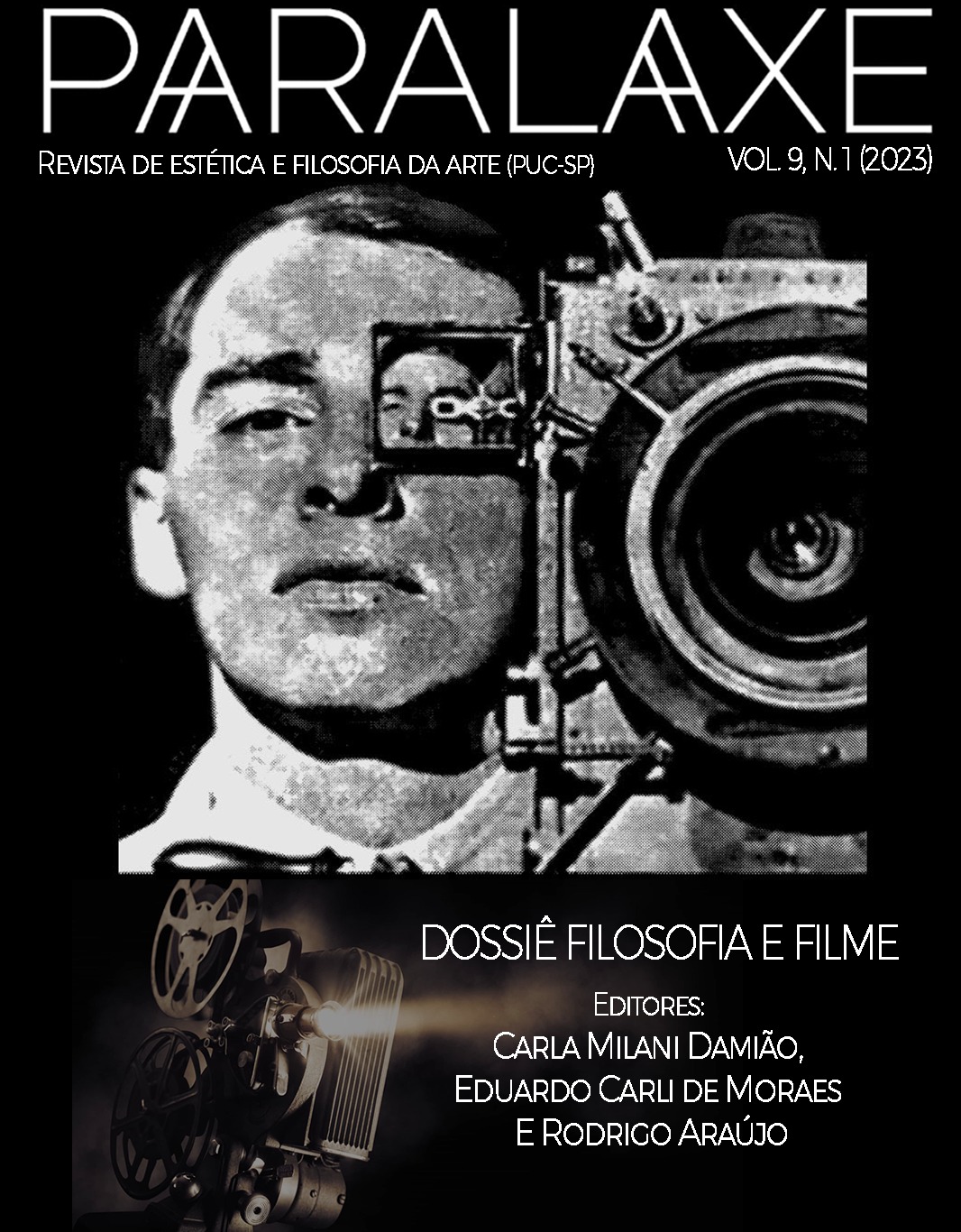Cinema, hallucination and oneiric language
the psychoanalysis at speed of the surreal canvases of David Lynch
DOI:
https://doi.org/10.23925/2318-9215.2023v9n1D7Keywords:
Cinema, Sonhos, PsicanáliseAbstract
This article presents an attempt to enunciate the familiar interweaving between filmic production, the formation of dreams, and the oneiric language. The approach of these objects as cinema, language and imagery composition of dreams is well punctuated in the cinematic aesthetic states of the director, David Lynch. Thus, as a complementary dialog about the formation of dreams, cinema and the image within our capitalist culture, we also travel through the philosophical tradition of the Critical Theory of Society for which the technological devices on screen function as a discharge of stimulation outside the normal impossible to be absorbed by the nervous system. Similar to the recurring nightmares of war soldiers, such technological stimulation has the same purpose, directing the user to repetition compulsion, addictive and rapid repetition in order to mitigate traumatic shock through image hyperinflation.
References
ADORNO, T; HORKHEIMER, M. Dialética do Esclarecimento: fragmentos filosóficos. Rio de Janeiro: Jorge Zahar, 1985.
BENJAMIN, W. Obras escolhidas. Vol. 1. Magia e técnica, arte e política. Ensaios sobre literatura e história da cultura. São Paulo: Brasiliense, 1985.
CHION, M. Audio-Vision. sound on screen. New York: Columbia Universty Press, 2005.
ENGELS, F. MARX, K. Manifesto Comunista. São Paulo: Boitempo editorial, 1998.
FLUSSER, V. Filosofia da caixa preta: ensaios para uma futura filosofia da fotografia. São Paulo: Annablume, 2011.
FREUD, S. A interpretação dos sonhos. São Paulo: Companhia das letras, 2019.
FREUD, S. O mal-estar na civilização: novas conferências introdutórias. A psicanálise e outros textos. São Paulo: Companhia das Letras, 2010.
GILBEY, S. Spoke Art. Disponível em: https://kultt.fr/des-artistes-exposent-leur-vision-de-david-lynch-a-san-francisco/ Acesso em: 17/08/2023.
LACAN, J. O Seminário, Livro 3: As Psicoses. Rio de Janeiro: Jorge Zahar, 2008a.
LACAN, J. O seminário, livro 11: os quatro conceitos fundamentais da psicanálise. Rio de Janeiro: Jorge Zahar, 2008b.
LACAN, J. Seminário, livro 20: mais, ainda. Rio de Janeiro: Zahar, 1985.
LACAN, L. Seminário, livro 21: Os não-tolos erram: os nomes do pai. Porto Alegre: Editora Fi, 2018.
LACAN, J. A instância da letra no inconsciente ou a razão desde de Freud. In: Lacan, J. Escritos. Rio de Janeiro: Jorge Zahar, 1998a (pp. 496-536).
LACAN, J. O engano no sujeito suposto saber. In: Jacques Lacan. Outros Escritos. Rio de Janeiro: Jorge Zahar, 2003.
LACAN, J. O estádio do espelho como formador da função do eu tal como nos é revelada na experiência psicanalítica. In: Lacan, J. Escritos. Rio de Janeiro: Jorge Zahar, 1998b (pp. 96-103).
MULHOLLAND DRIVE. David Lynch. Universal Studios. EUA: 2001. Califórnia: Universal Pictures. 2001. Plataforma de streaming. (147 minutos), colorido.
NATTERER, A. My eyes in the time of apparition, 1913. Domínio público. Disponível em: https://www.wikiart.org/en/august-natterer/my-eyes-in-the-time-of-apparition-1913. Acesso em: 20/08/2023.
TUBRETT, D. ’So where are you?’ On memento, memory, and the sincerity of self-deception. Cineaction, 56, 2-10, 2001.
TÜRCKE, C. Filosofia do sonho. Ijuí: Ed. Unijuí, 2010a.
TÜRCKE, C. Sociedade excitada: filosofia da sensação. Campinas: Unicamp, 2010b.
TÜRCKE, C. Hiperativos: abaixo a cultura do déficit de atenção. Paz e Terra, 2012.
ZIZEK, S. O mais sublime dos histéricos. Hegel com Lacan. Rio de Janeiro: Jorge Zahar, 1991.
ZIZEK, S. The art of the ridiculous sublime: on David Lynch’s Lost Highway.
Seattle: University of Washington Press, 2000.
ZIZEK, S(org.). Um mapa da ideologia. Contraponto, 2010.
Downloads
Published
How to Cite
Issue
Section
License
Cedo à revista Paralaxe os direitos autorais de publicação de meu artigo e consultarei o editor científico da revista caso queira republicá-lo depois em livro.


